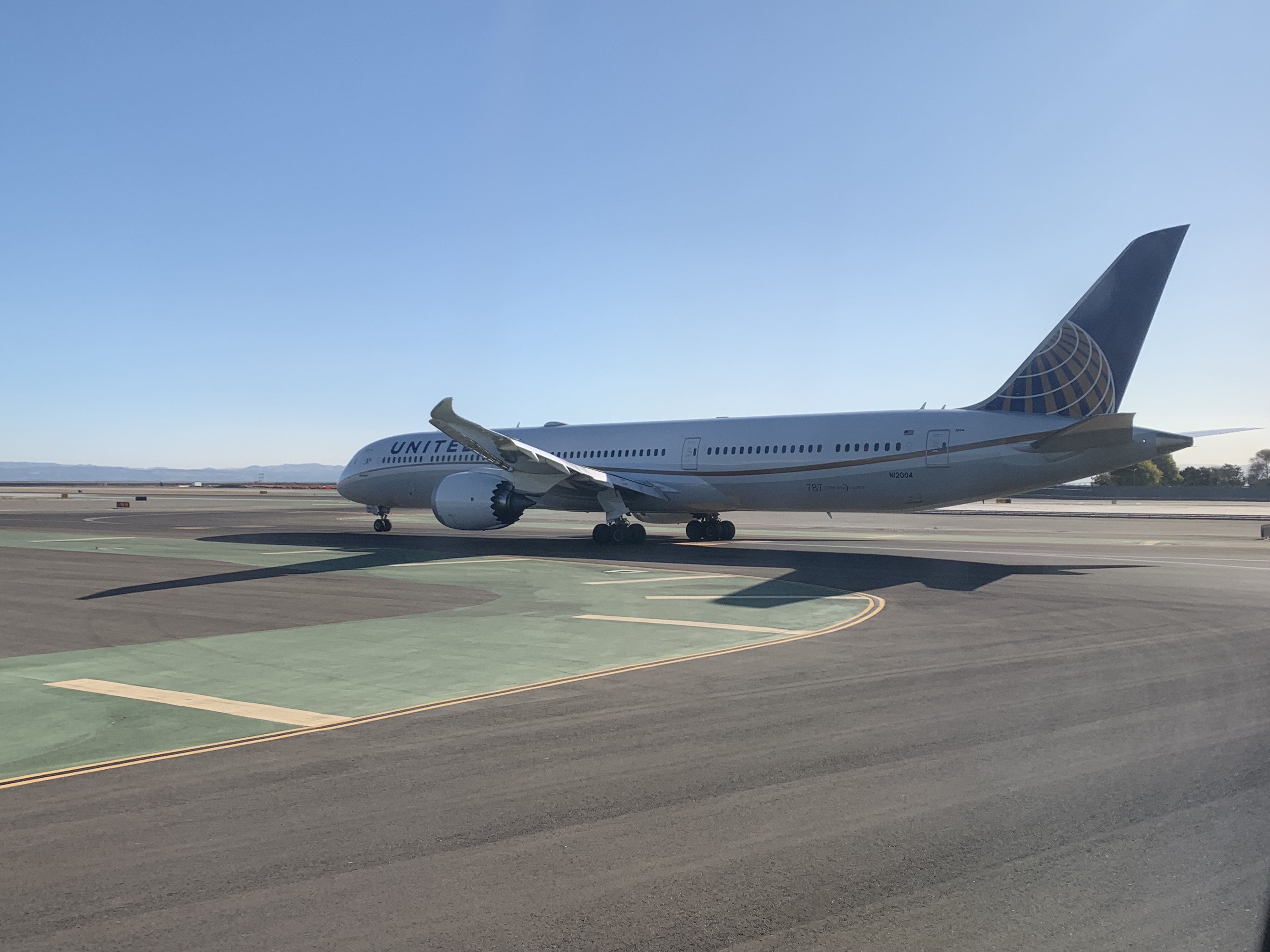United Airlines Making Bold Changes To How You Earn Status

Airline elite status has continued to evolve over the past few years. American, Delta and United have all made significant changes. The majority of those changes have been to emphasize the amount of revenue a customer generates.
In the case of United, they increased the spending requirements for elite status a year ago. At the same time, they didn’t add more benefits. For some folks, they changed an upgrade benefit some found valuable.
In a bit of a non-event, United announced that the miles you earned would no longer expire.
And, just barely two weeks ago United made a substantial change to the upgrades their highest ranked elite members earn. Even with that flexibility, I said at the time that United should have gone further. They have continued to increase the “price” of elite status by increasing the spending requirement, without much benefit offered in return. They’re on record saying they’re selling more first class seats than they were in years past. By definition that means less complimentary upgrades for elite members. And, the inventory needed to redeem those new Plus Points has been harder to come by.
United Increase Spending, Reduces Mileage Requirements
United is taking things much further. Starting in 2020 (for elite qualification in 2021) how elite members earn status is changing. Miles are no longer a fundamental part of the equation on earning elite status. Instead, we’re introduced to two new tracking mechanisms. Premier Qualifying Points (PQP) will be earned similarly to how a PQD was earned. One dollar in spending on a United fare will earn 1 PQP. Each flight segment ticketed on United will earn one Premier Qualifying Flight (PQF).
You’ll be able to earn elite status based on a combination of Premier Qualifying Points and Premier Qualifying Flights or just on Premier Qualifying Points alone. I’ve put together a chart to help explain:
| PQP & PQF | PQP Only | |
| Silver | 4,000 PQP + 12 PQF | 5,000 PQP |
| Gold | 8,000 PQP + 24 PQF | 10,000 PQP |
| Platinum | 12,000 PQP + 36 PQF | 15,000 PQP |
| 1K | 18,000 PQP + 54 PQF | 24,000 PQP |
Changes To Earning United Status On International Travel
In the past, MileagePlus elite members haven’t been able to earn Premier Qualifying Dollars for travel that’s ticketed on Star Alliance partners like Lufthansa. Today’s changes will definitely make international travelers happy.
In 2020, international flights ticketed on partner airlines will earn PQPs. To calculate the amount of PQPs earned, divide the number of redeemable miles earned by 6. If the flight is specifically on ANA, Air Canada, Copa or Lufthansa, divide by 5 to figure out the PQPs.
United Credit Card Spending Changes
Earning PQPs through credit card spending will be difficult. You’ll earn 500 PQPs for $12,000 in spend on a United co-branded credit card, and an additional 500 PQPs for another $12,000 in spend. However, those PQPs can’t be applied to 1K status, just Platinum and below.
Earning On Additional Spending
On top of earning Premier Qualifying Points on partner tickets, travelers will also be able to earn PQPs on upgrade award co-pays and on paid upgrades. As the price of a paid upgrade has dropped to entice more purchases, it seems more than fair that those dollars should count towards elite status.
United Already Devalues Their New Plus Points Program
Update: With the change from RPU/GPU to PlusPoints, earning additional upgrades will be solely based on how much you spend with the airline. For each additional 3,000 PQPs you earn past the qualification for 1K, you’ll earn 20 PlusPoints. That’s the equivalent of a single RPU under the previous system. Today, roughly that amount of spending would earn you a GPU, or 40 PlusPoints. It didn’t take long to see the first indication that United won’t be afraid to reduce the value of the upgrades top-tier elites receive.
First Thoughts
There are some winners in this new structure. I know some business travelers who hit the spending requirement but may not fly 100,000 miles per year. Still, that number of people is small. I meet for more business travelers who fly 100,000 miles a year but don’t get close to the spending requirement.
International travelers will definitely benefit. International business travel, especially in premium cabins, can get quite pricey. That means racking up Premier Qualifying Points, though not PQFs. This move makes plenty of sense if Star Alliance is truly an alliance. There should be more benefit for elite members booking with a partner.
The credit card spending piece seems especially weak. Spending $1,000 a month to earn a measly 500 PQPs doesn’t sound like a solid investment, especially when you consider that the bonus categories on the United cards aren’t spectacular.
The change to how top elites earn additional PlusPoints just seems petty. The timing of these moves, so close together, could have been choreographed as one change. Instead, they announce PlusPoints two weeks ago to make members feel happy, then roll out a change that likely reduces how many PlusPoints road warriors earn.
In a matter of a few years, United has managed to almost double the spending requirement for elite status without a noticeable change in benefits. We won’t really see the impact of last year’s increase in spending requirements on upgrade percentages until 2020, since current elites earned status on the lower 2018 requirements.
I really doubt we’ll see a noticeable increase in complimentary upgrades for elite members. The airline has gotten much better at selling those seats. That means business travelers spending tens of thousands of dollars with United are left with more flexible upgrade certificates as the only meaningful benefit they can point to in exchange for a significantly larger financial commitment. And, it’s not United is focusing on improving amenities that are important to business travelers, as they still struggle mightily just to deliver a basic Wi-Fi connection.
The Final Two Pennies
My guess is that the framework for these changes was actually mapped out last year, prior to the spending increases. They probably established some targets for elite qualification that they would track late in the year to make sure their assumptions were within margin. It’s possible they needed more time to work on the tech for changes like spending on international tickets (not on United ticket stock).
I have to imagine these changes further shrink the number of top-tier 1K members going forward. It will be interesting to see what that looks like in 2021. Elite members don’t stand to get more benefits in 2020 or 2021. The lack of increased benefits may encourage some folks to change airlines or diversify early if they know they can’t retain status with United.
While there are a handful of travelers that will benefit from these changes, I don’t see this attracting many travelers from Delta or American. And, it likely reduces the number of existing elite members. How much we don’t know, though United has likely modeled that based on 2019 activity.
In the end, United is making these changes because they can. The airlines have reshaped the loyalty equation for business travelers. Those assumptions will be tested in the next economic downturn. For now, business travelers are forced to pay more if they want to keep the same benefits. That’ll be hard to sell as a win-win.
Did you enjoy this post? Please share it! There’s plenty of ways to do that below.
You can also follow me on Twitter, Facebook and Instagram.
And, I hope you’ll check out my podcast, Miles To Go. We cover the latest travel news, tips and tricks every week so you can save money while you travel better. From Disney to Dubai, San Francisco to Sydney, American Airlines to WestJet, we’ve got you covered!

Interesting! Thanks for your insights Ed!
Storyteller, wish I didn’t have to share insights on a change like this.
Any idea how this new scheme will affect non-US residents?
Paco, the spending waiver for overseas folks is no longer.
I don’t see a way to get up to segments with my international flying…I can do 18K spend…its the segments that will kill me. I may have to bring back segment runs?!
Joelfreak, segment runs? Ugh. The in-flight product isn’t good enough to make that very enjoyable.
People that fly on vacations or small business owners like me that have to pay for their tickets usually do not spend 24k per year.
What these stupid airlines in the USA do not realize is that these big corporations will keep paying for their employees tickets despite of anything, because their focus is on their business needs and they will have to pay for the travel costs whatever it might be.
The big 3 airlines (UA,AA,DL) should be trying to please the vacationers and small business owners that cannot afford to pay for First/Business every time they fly and would like to rely on their status for benefits such as upgrades and other smaller perks.
These are the ones that will be loyal to the airline who gives them more benefits.
Fabinho, we’re mostly in agreement. The airlines should be rewarding customers for incremental business. Credit card companies want “wallet share”. Airlines just want revenue. If flights were 100% full, they don’t need to discount. But, at some point load factor is going to drop and they’re going to need people to fill those seats. The only mechanism left at that point will be to drop their price.
The more we let companies merge, and competition be removed from the market, the more we will see moves like this.
100% fair.
+1. There has been far too much consolidation in the domestic airline industry. It’s like the oil companies in the early 1900’s, and similarly these companies need to be split up to return to a competitive situation.
A great review indeed! I have been !k member for a long time and have not been able to utilize RPU and GPU in all these years. My international travel to Asian countries such as Singapore, Philippine, India were mainly on United and service has been more or less poor. This poses a question in my mind as to why I should continue in United? just because I live in hub city? Anyway, I buy revenue business class out of my pocket. Why worry about United status? I am planning on switching to many airlines including Singapore air / British Airways / Qatar / Cathay Pacific for international and pick of the lot for domestic travel. Any thoughts?
Shankar, if the majority of your travel is overseas, I’d say you’re likely better off with another airline from a service and quality of product standpoint (at least until there’s more Polaris roll-out).